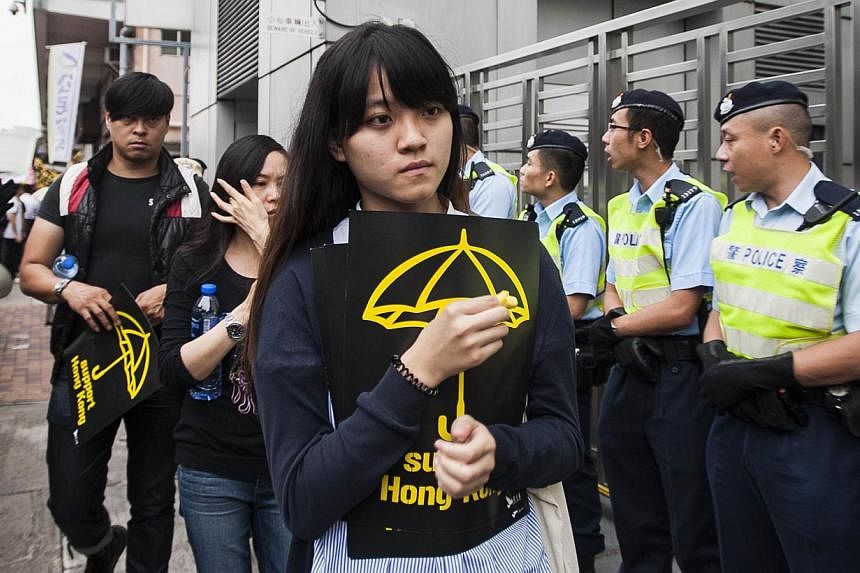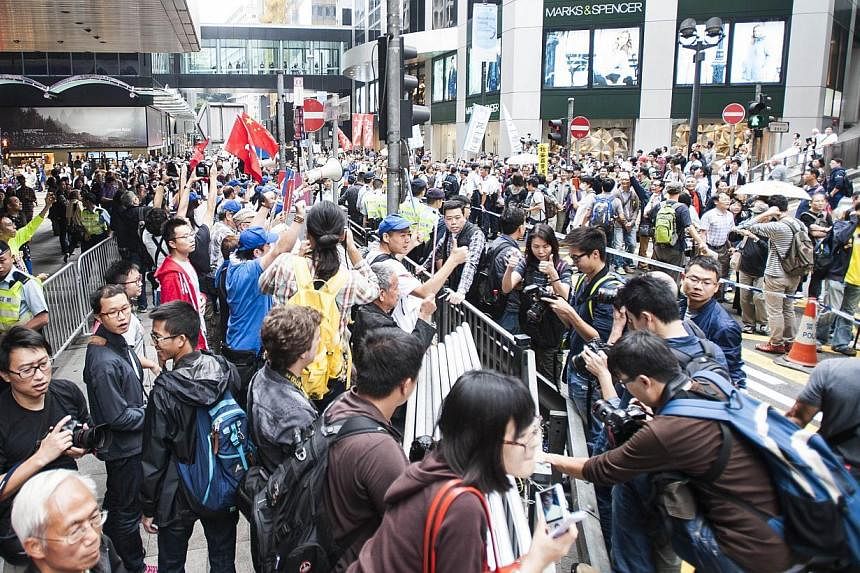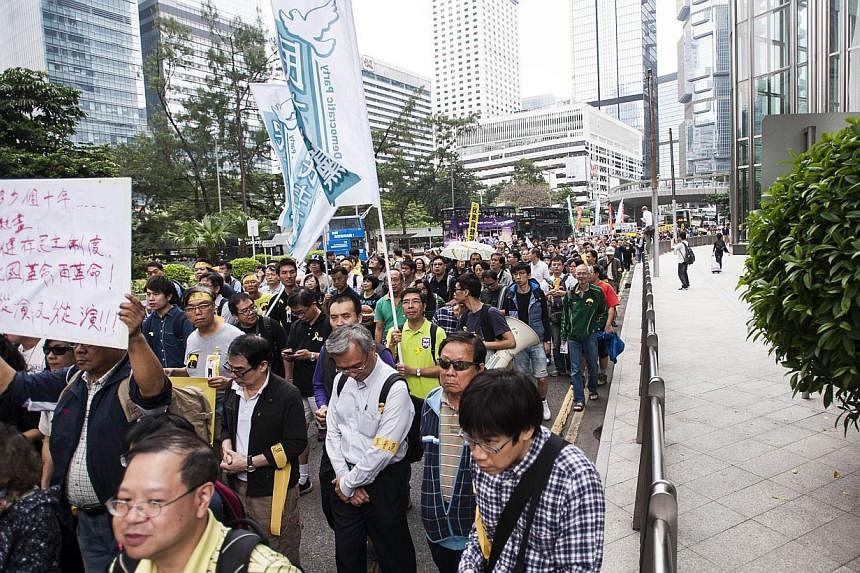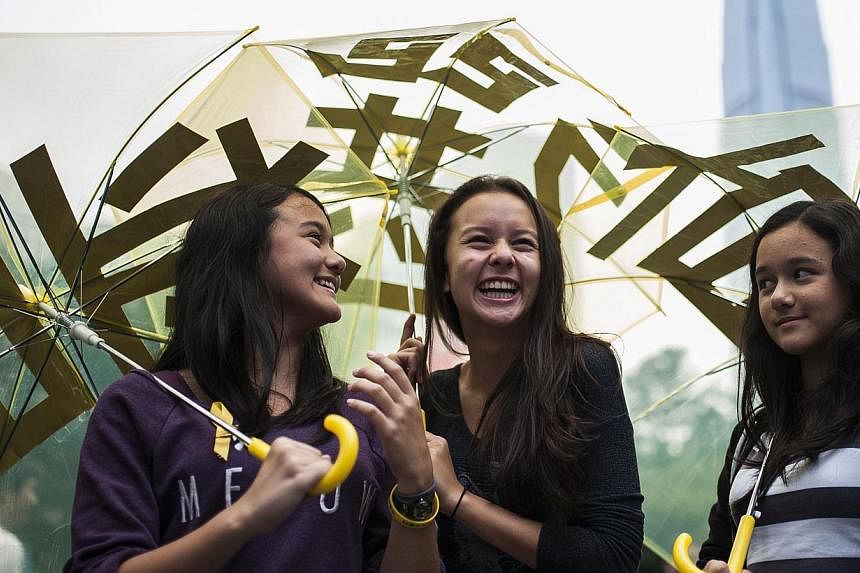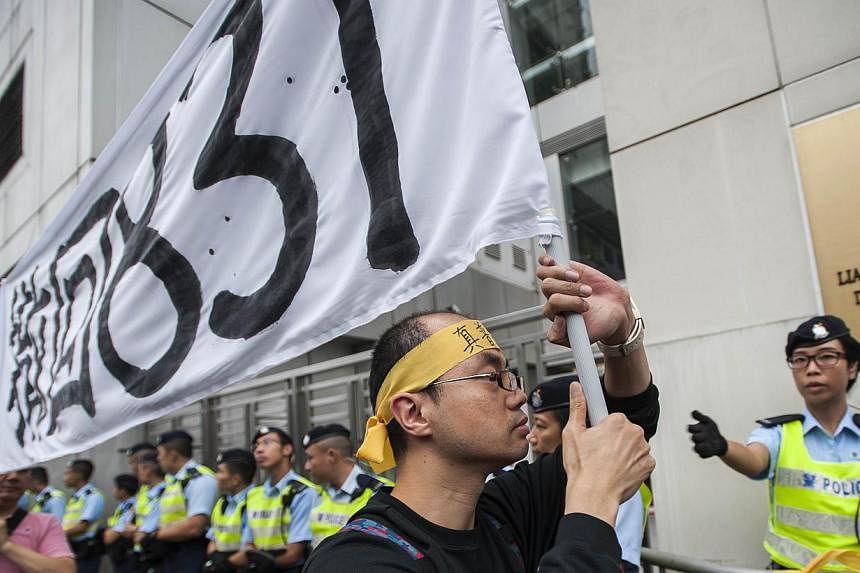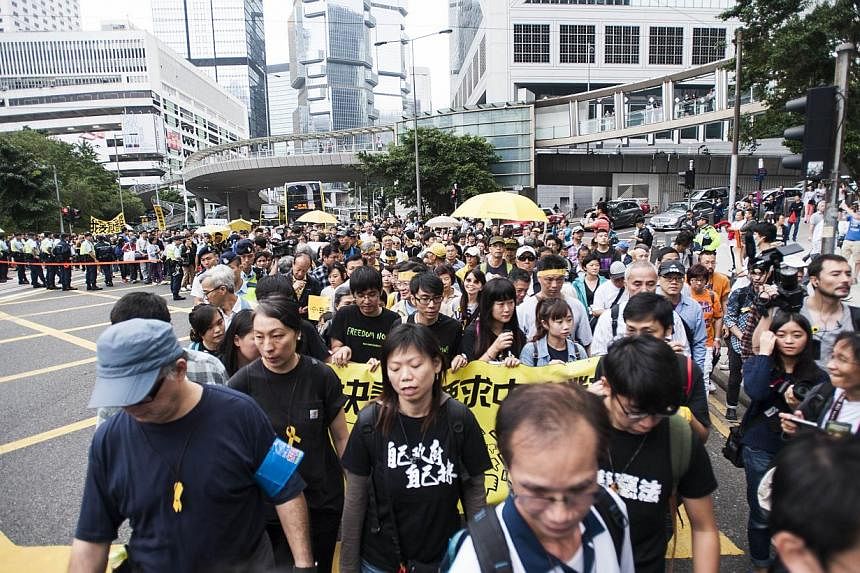HONG KONG (AFP) - Hundreds of Hong Kong pro-democracy protesters marched on Sunday to the Chinese government's offices in the semi-autonomous city, demanding direct talks with Beijing officials after six weeks of mass street rallies.
Demonstrators have been camped out on three major road junctions across the financial hub since September 28, calling for free leadership elections in 2017.
China insists that candidates for the city's top post must be vetted by a loyalist committee, which protesters say will result in the election of a pro-Beijing stooge.
Nearly 1,000 protesters marched from a park in the central financial district to Beijing's liaison office several miles away, some holding a banner reading: "We demand dialogue with the central government."
Protest leaders have asked to meet Beijing officials after talks with the local government in Hong Kong last month failed to bear any fruit.
Local officials offered tentative concessions to the protesters, saying they would file a report to Beijing about recent events and suggesting that both sides set up a committee to discuss further political reform beyond 2017. Neither idea met with much enthusiasm from the demonstrators.
"Students were showing good faith that if the Hong Kong government can't handle this, why don't we get in touch with the central authorities to discuss whether or not we can narrow the differences," said Joshua Wong, a teenage activist who has become one of the most prominent faces of the pro-democracy movement.
"But so far, we've been given the cold shoulder."
Protest leaders have been mulling a trip to Beijing to press Chinese officials more directly.
The Hong Kong Federation of Students, which has been at the vanguard of the protests, has ruled out mooted plans to try to gatecrash this week's Asia-Pacific Economic Cooperation (Apec) summit, which will see global leaders including US President Barack Obama gather in Beijing.
A later trip to Beijing is still under consideration, although it is not clear whether activists would be allowed to travel there.
Hong Kong student group Scholarism said on Friday that one of its members had been turned back trying to cross the Chinese border, with officials saying he had taken part in "activities that jeopardise national security".
In Beijing Sunday, Chinese President Xi Jinping voiced support for Hong Kong's embattled leader Leung Chun Ying and his handling of the protests, the official Xinhua news agency reported.
China "fully affirms and supports" Leung's efforts to safeguard the rule of law and maintain social order, Xi told Leung, who is in Beijing to attend APEC.
Some protesters in Hong Kong marched on Sunday holding yellow umbrellas, a symbol of the democracy movement, while others shouted: "I want true democracy!" A line of police officers watched from within the complex as the demonstrators tied yellow ribbons to the gates of the Chinese government office.
A British colony until 1997, Hong Kong enjoys civil liberties not seen on the communist-ruled mainland.
But fears have been growing that these freedoms are being eroded, while growing frustrations over the city's huge wealth gap have also fed the protests.
